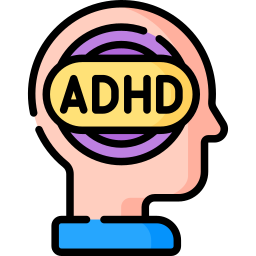Living with Attention Deficit Hyperactivity Disorder (ADHD) presents unique challenges, particularly when it comes to staying organized. Individuals with ADHD often grapple with issues related to time management, forgetfulness, and maintaining focus, which can make organizing daily life a daunting task. However, with the right strategies and tools, managing these challenges becomes more manageable. This article offers practical advice on how to stay organized despite the hurdles of ADHD.
Understanding ADHD and Organization Challenges
ADHD is a neurodevelopmental disorder characterized by symptoms such as inattention, hyperactivity, and impulsivity. These symptoms can make it difficult to maintain organization in various aspects of life, including work, school, and home. For instance, difficulty in sustaining attention might lead to missed deadlines, while impulsivity can result in haphazard decision-making.
To counteract these challenges, it’s essential to understand that organization isn’t just about having a clean space—it’s about creating systems that work with your brain’s natural tendencies. This involves developing strategies that accommodate the way you think and work.
1. Embrace Structure and Routine
One of the most effective ways to stay organized with symptoms of ADHD is to establish and adhere to a structured routine. Consistent routines help reduce the mental effort required to make decisions, as actions become habitual over time. Here’s how to build a routine that works for you:
Use a planner or digital calendar to map out your day. Break your day into time blocks for specific tasks and activities. Having a visual representation of your day can help keep you on track.
Designate specific times for recurring activities like meal preparation, exercise, and relaxation. Consistency helps create a sense of normalcy and reduces the likelihood of forgetting important tasks.
Set alarms on your phone or use reminder apps to prompt you about important tasks and deadlines.
2. Utilize Organizational Tools
Tools and technology can be invaluable for managing ADHD-related organizational challenges. Here are some tools and methods to consider:
Applications like Todoist, Trello, or Asana can help you organize tasks and projects. These apps allow you to create to-do lists, set deadlines, and track your progress.
Digital calendars like Google Calendar or Outlook can help you manage appointments, deadlines, and reminders. Syncing your calendar across devices ensures you have access to your schedule wherever you go.
Tools like Evernote or Microsoft OneNote allow you to jot down ideas, make lists, and organize information. They can be particularly useful for managing large amounts of information and keeping track of important details.
3. Declutter Your Space
A cluttered environment can contribute to feelings of overwhelm and make it harder to focus. Organizing your physical space can lead to better organization of your thoughts and tasks. Here are some tips for decluttering:
Begin with one area at a time, such as a single drawer or desk. Completing small tasks can provide a sense of accomplishment and motivation to continue.
Use containers, shelves, and organizers to keep your belongings in order. Labeling storage containers can also make it easier to find what you need.
Set aside time each week to tidy up your space. Regular maintenance helps prevent clutter from accumulating and keeps your environment conducive to focus and productivity.
4. Break Tasks Into Manageable Steps
Large tasks can seem overwhelming and lead to procrastination. Breaking tasks into smaller, more manageable steps can make them seem less daunting and easier to tackle. Here’s how to apply this strategy:
For example, instead of “clean the house,” break it down into smaller tasks like “vacuum the living room” and “dust the shelves.” This approach makes the task feel more achievable.
Establish short-term goals that you can accomplish quickly. This not only helps you make progress but also provides a sense of achievement that can boost motivation.
5. Implement Time Management Strategies
Effective time management is crucial for staying organized with ADHD. Adopting strategies to manage your time more effectively can help you stay on top of tasks and deadlines:
This technique involves working in focused intervals (typically 25 minutes) followed by short breaks. It helps maintain concentration and prevent burnout.
Use methods like the Eisenhower Matrix to categorize tasks by urgency and importance. Focus on completing high-priority tasks first before moving on to less critical ones.
While it may seem efficient, multitasking can reduce productivity and increase errors. Focus on one task at a time to ensure better quality work and more efficient use of time.
6. Seek Support and Accountability
Having a support system can make a significant difference in staying organized. Accountability partners can help you stay on track and provide encouragement:
Let friends, family, or colleagues know about your goals and deadlines. Their support can provide motivation and encouragement.
ADHD coaches or therapists can offer personalized strategies and techniques to improve organization and time management. They can also help address any underlying issues that might be affecting your ability to stay organized.
7. Practice Self-Care and Flexibility
Lastly, it’s important to practice self-care and remain flexible with your strategies. treatment of ADHD can be challenging, and it’s essential to be kind to yourself:
Developing effective organizational habits takes time. Be patient with yourself as you experiment with different strategies and find what works best for you.
What works well for one person might not work for another. Be open to adjusting your strategies as needed and adapting them to fit your evolving needs.
Conclusion
Staying organized with ADHD requires a combination of structured routines, effective tools, and self-compassion. By embracing strategies that align with your brain’s natural tendencies, you can create an environment that supports productivity and reduces stress. Remember, organization is a journey, not a destination. With persistence and the right approaches, you can manage ADHD-related challenges and achieve greater success in both your personal and professional life.




